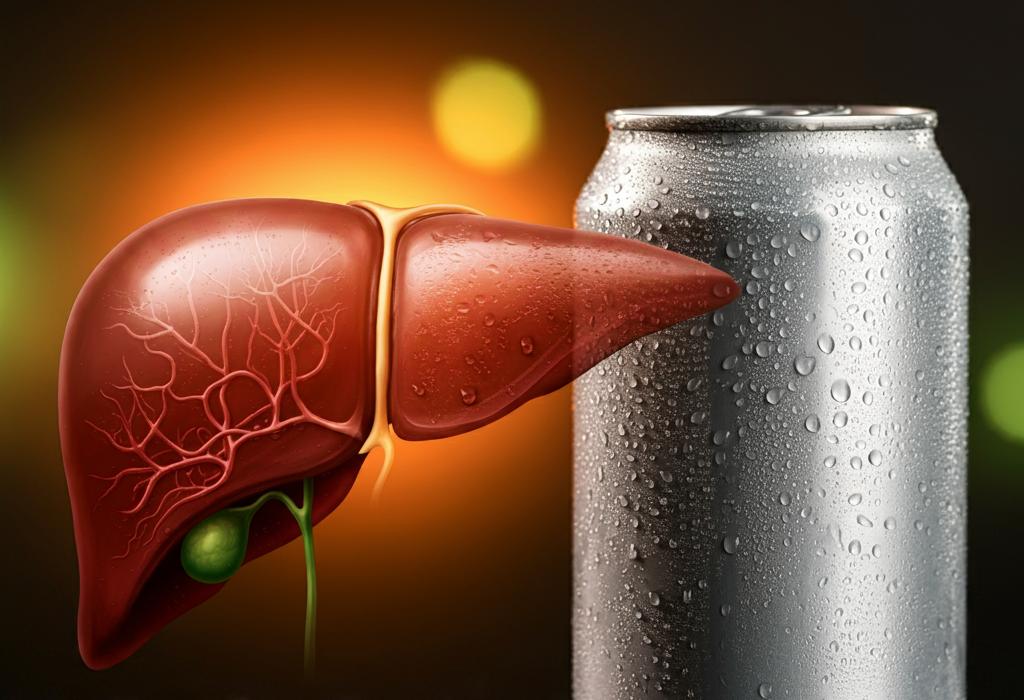
Soft drinks have become an integral part of modern diets, with millions of people worldwide consuming these sugary beverages daily. However, recent studies have shed light on the potential health risks associated with excessive soft drink consumption, particularly its impact on liver health. This article explores the connection between higher soft drink intake and the increased risk of liver disease, examining the scientific evidence, potential mechanisms, and implications for public health.
The Rise of Soft Drink Consumption
Over the past few decades, soft drink consumption has skyrocketed globally. These beverages, often laden with sugar and artificial additives, have become a staple in many people's diets. The convenience, taste, and aggressive marketing of soft drinks have contributed to their widespread popularity. However, this trend has coincided with a rise in various health issues, including obesity, diabetes, and, more recently, liver disease.
Understanding Liver Disease
Before delving into the link between soft drinks and liver health, it's essential to understand what liver disease entails. The liver is a vital organ responsible for numerous functions, including detoxification, protein synthesis, and the production of biochemicals necessary for digestion. Liver disease encompasses a range of conditions that affect liver function, such as fatty liver disease, cirrhosis, and liver cancer.
The Scientific Evidence
Several studies have established a correlation between high soft drink consumption and an increased risk of liver disease. A landmark study published in the Journal of Hepatology found that individuals who consumed two or more sugar-sweetened beverages per day had a higher likelihood of developing fatty liver disease compared to those who consumed less than one serving per month.
Another research project, conducted over a span of seven years, revealed that people who regularly consumed sugar-sweetened beverages had a 61% higher risk of developing non-alcoholic fatty liver disease (NAFLD) compared to non-consumers. These findings highlight the potential long-term consequences of excessive soft drink intake on liver health.
Mechanisms Behind the Link
The connection between soft drink consumption and liver disease can be attributed to several factors:
High Sugar Content: Most soft drinks are loaded with added sugars, primarily in the form of high-fructose corn syrup. When consumed in excess, these sugars can lead to fat accumulation in the liver, a condition known as hepatic steatosis.
Insulin Resistance: Regular consumption of sugary beverages can contribute to insulin resistance, a precursor to type 2 diabetes. Insulin resistance is closely associated with the development of fatty liver disease.
Oxidative Stress: The high sugar content and additives in soft drinks can increase oxidative stress in the body, potentially damaging liver cells and promoting inflammation.
Increased Caloric Intake: Soft drinks provide empty calories without nutritional value, often leading to weight gain and obesity, which are risk factors for liver disease.
Disruption of Gut Microbiome: Some studies suggest that the artificial sweeteners and additives in soft drinks may alter the gut microbiome, indirectly affecting liver health.
Public Health Implications
The growing evidence linking soft drink consumption to liver disease has significant implications for public health. As liver disease rates continue to rise globally, addressing modifiable risk factors such as dietary habits becomes crucial. Public health initiatives aimed at reducing soft drink consumption could play a vital role in preventing liver disease and improving overall health outcomes.
Alternatives and Lifestyle Changes
To mitigate the risk of liver disease associated with soft drink consumption, individuals can consider the following alternatives and lifestyle changes:
Opt for water, unsweetened tea, or naturally flavored water as healthier beverage choices.
Limit soft drink intake to occasional treats rather than daily consumption.
Choose whole fruits over fruit juices to satisfy sweet cravings while benefiting from fiber content.
Increase physical activity to help maintain a healthy weight and support liver function.
Adopt a balanced diet rich in fruits, vegetables, whole grains, and lean proteins to promote overall health.
The Role of Education and Policy
Addressing the issue of excessive soft drink consumption requires a multi-faceted approach. Education plays a crucial role in informing the public about the potential health risks associated with these beverages. Schools, healthcare providers, and community organizations can contribute to raising awareness about the importance of making healthier beverage choices.
Additionally, policy measures such as sugar taxes, restrictions on marketing sugary drinks to children, and improved labeling regulations can help create an environment that supports healthier choices. Some countries have already implemented such measures with promising results in reducing soft drink consumption.
Conclusion
The link between higher soft drink consumption and increased risk of liver disease is a growing concern in the field of public health. As scientific evidence continues to mount, it becomes increasingly clear that reducing soft drink intake could have significant benefits for liver health and overall well-being. By making informed choices about beverage consumption and adopting healthier lifestyle habits, individuals can take proactive steps to protect their liver and reduce the risk of developing liver disease. As research in this area progresses, it is likely that the importance of limiting soft drink consumption will become even more apparent in the quest for better public health outcomes.






Post comments